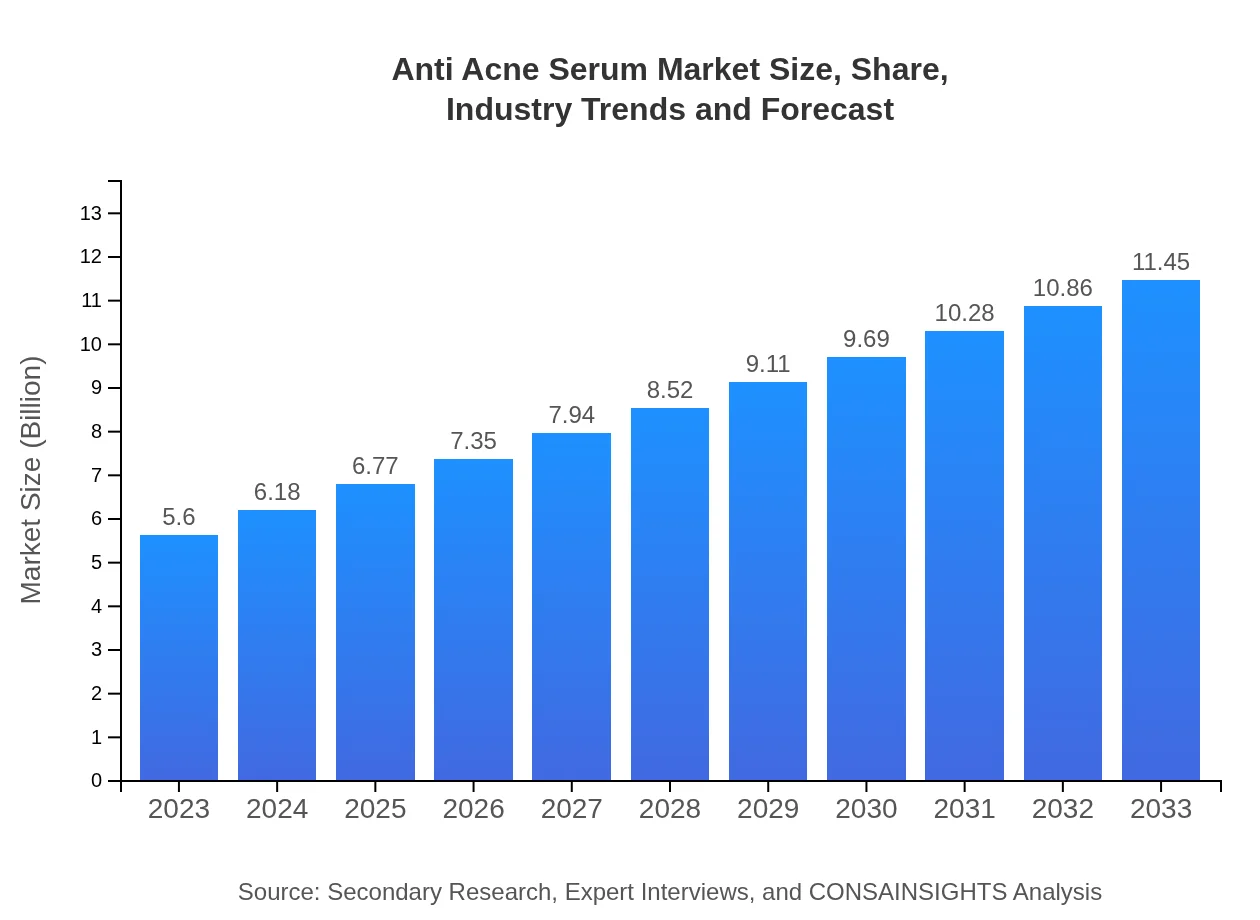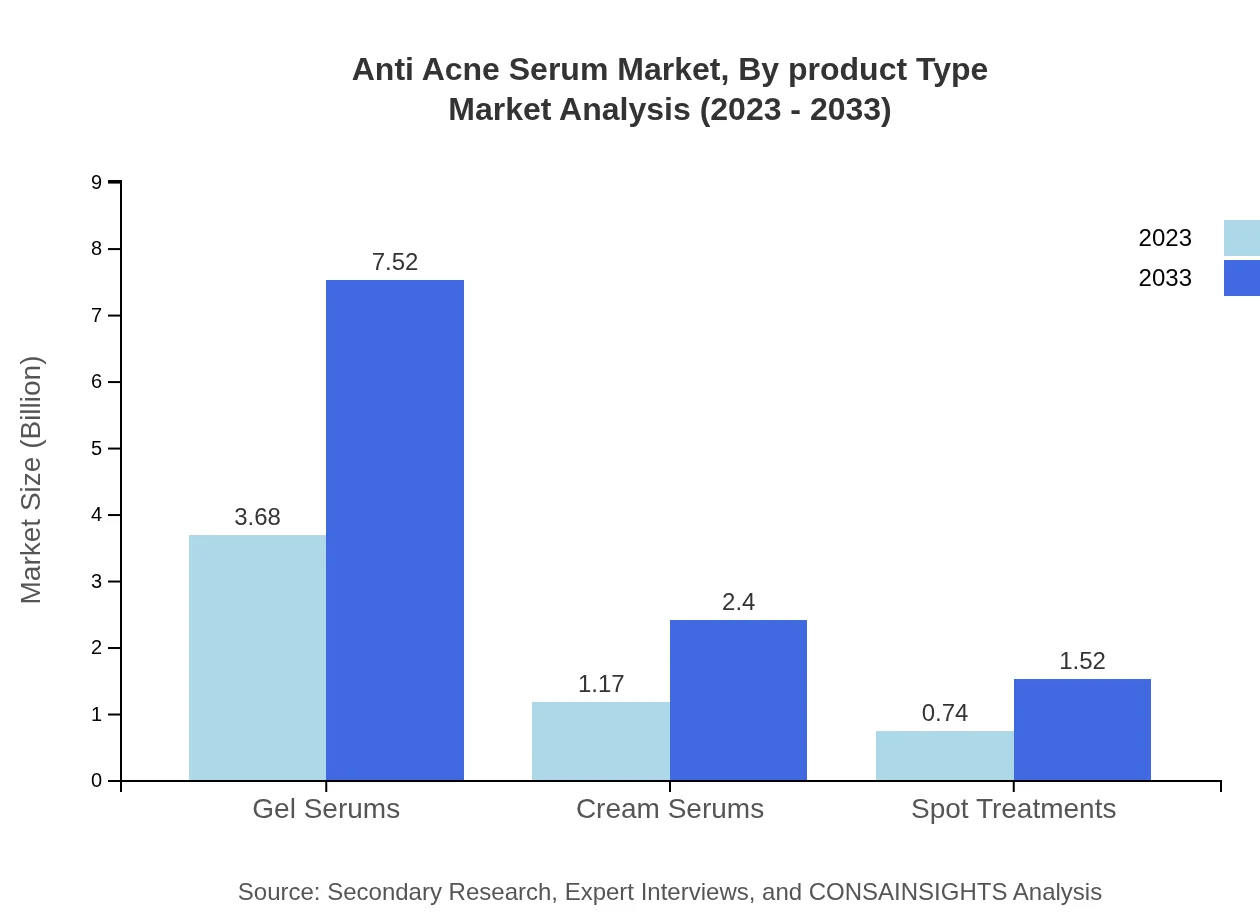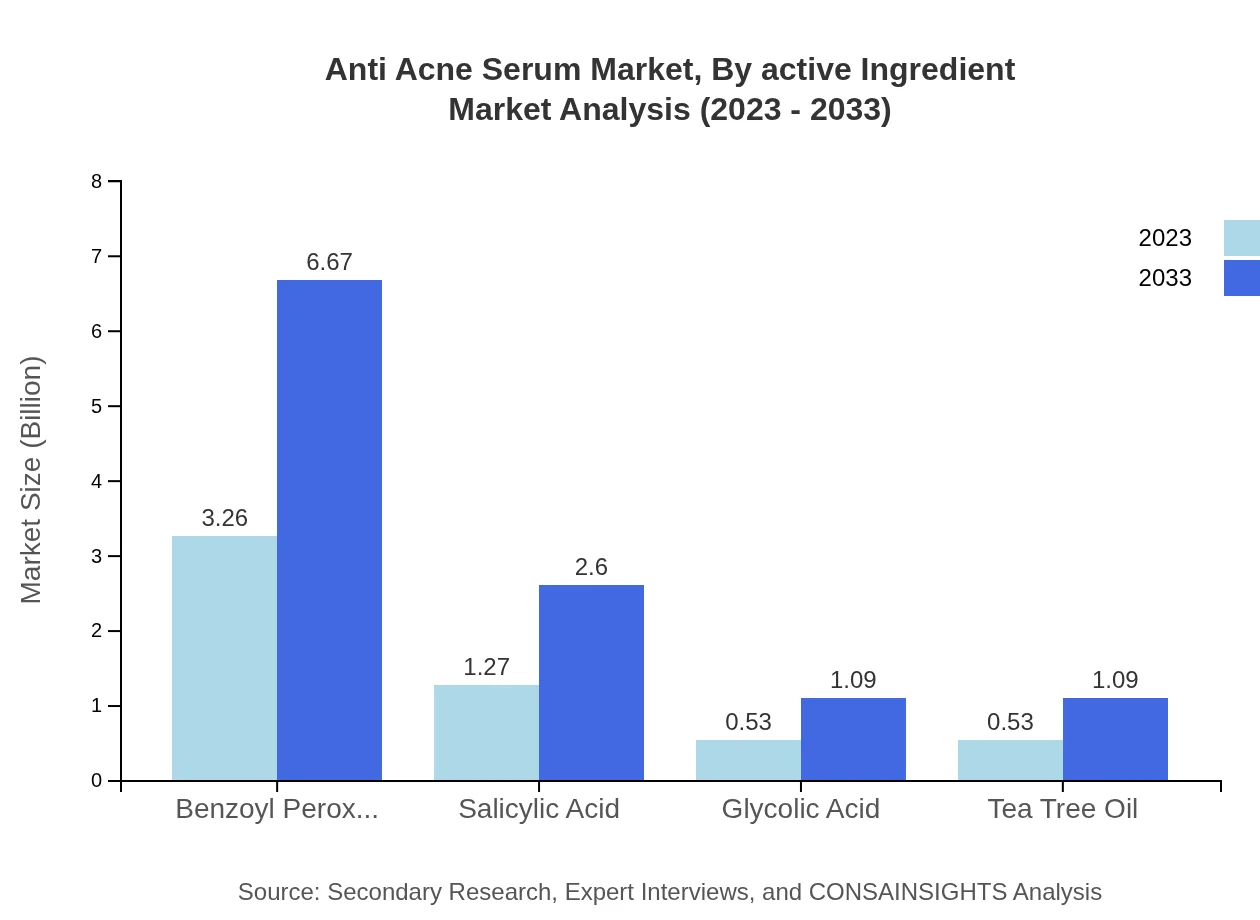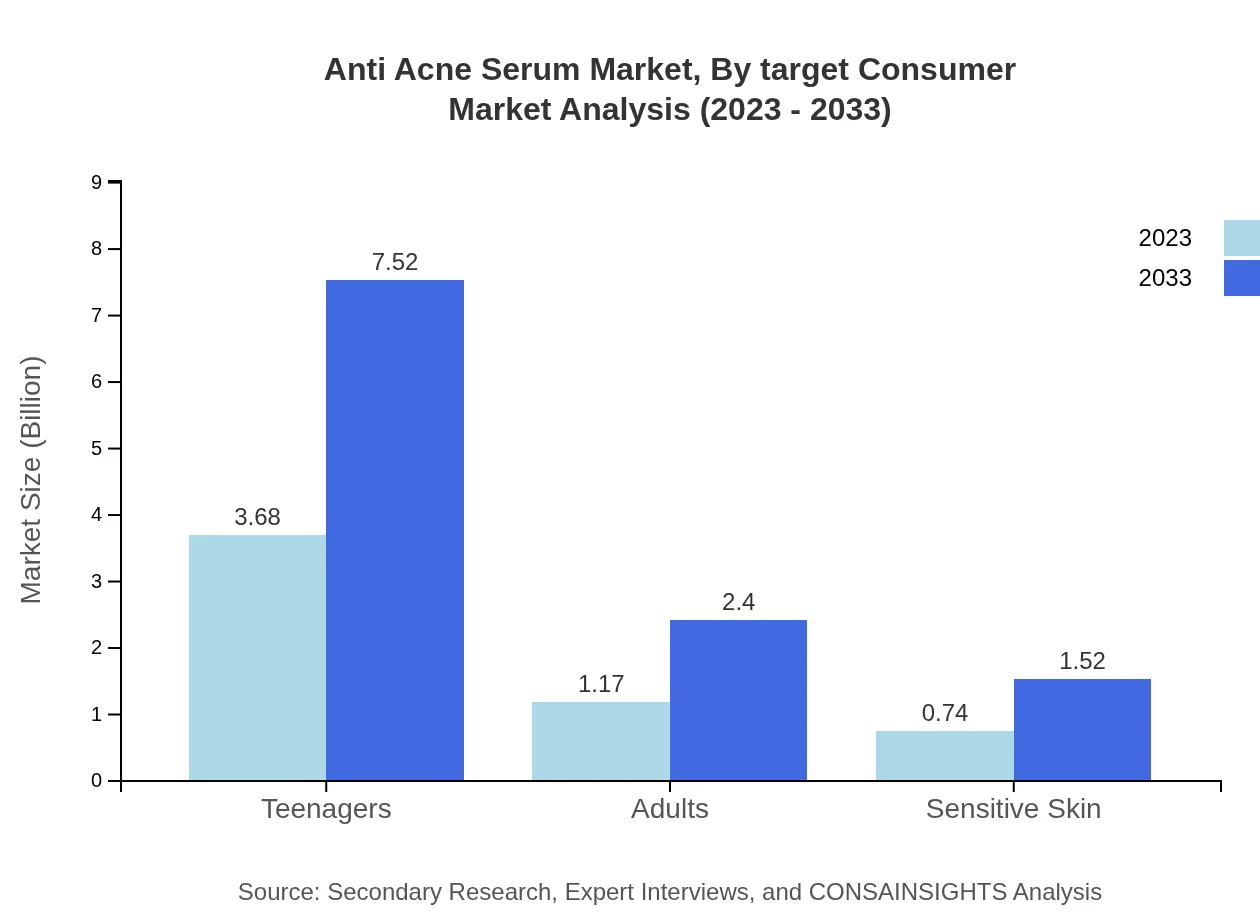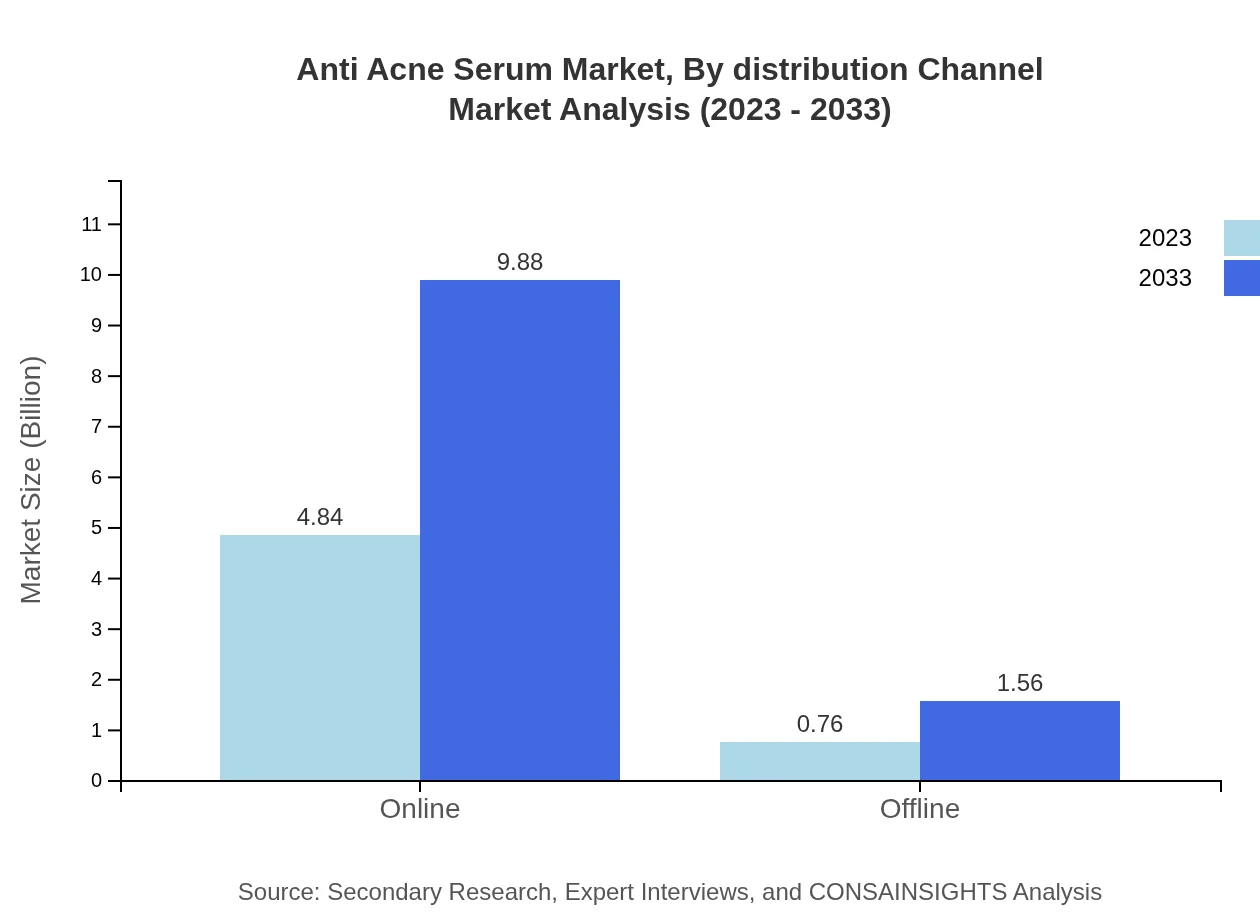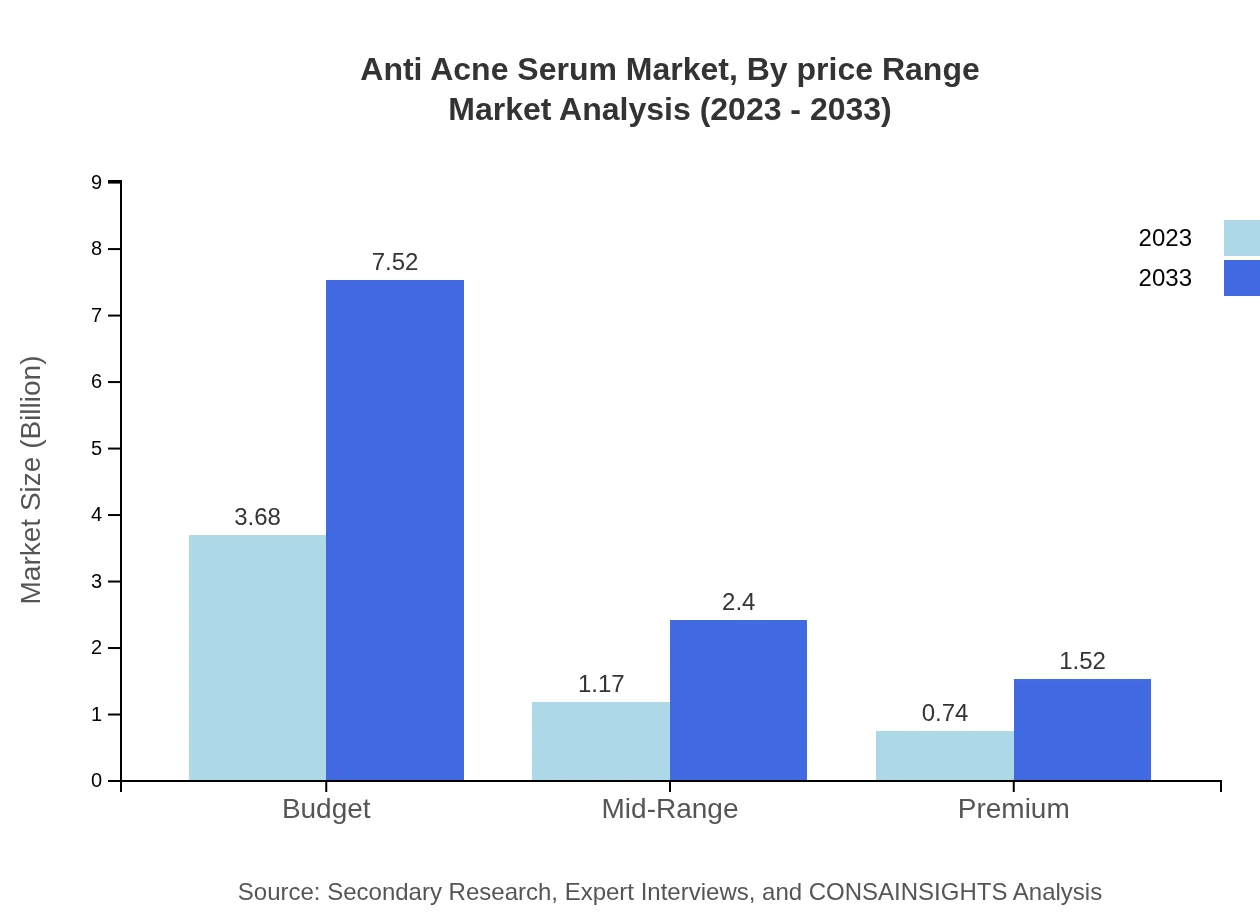Anti Acne Serum Market Report
Published Date: 01 February 2026 | Report Code: anti-acne-serum
Anti Acne Serum Market Size, Share, Industry Trends and Forecast to 2033
This report provides a comprehensive analysis of the Anti Acne Serum market from 2023 to 2033, exploring market trends, size, key players, and growth forecasts. Insights include regional performance and technological advancements impacting the industry.
| Metric | Value |
|---|---|
| Study Period | 2023 - 2033 |
| 2023 Market Size | $5.60 Billion |
| CAGR (2023-2033) | 7.2% |
| 2033 Market Size | $11.45 Billion |
| Top Companies | Proactiv, Neutrogena, Clinique, The Ordinary, CeraVe |
| Last Modified Date | 01 February 2026 |
Anti Acne Serum Market Overview
Customize Anti Acne Serum Market Report market research report
- ✔ Get in-depth analysis of Anti Acne Serum market size, growth, and forecasts.
- ✔ Understand Anti Acne Serum's regional dynamics and industry-specific trends.
- ✔ Identify potential applications, end-user demand, and growth segments in Anti Acne Serum
What is the Market Size & CAGR of Anti Acne Serum market in 2023?
Anti Acne Serum Industry Analysis
Anti Acne Serum Market Segmentation and Scope
Tell us your focus area and get a customized research report.
Anti Acne Serum Market Analysis Report by Region
Europe Anti Acne Serum Market Report:
Europe's market is valued at $1.84 billion in 2023, predicted to increase to $3.76 billion by 2033. A strong focus on skin health and natural ingredients drives consumer preferences, coupled with stringent product regulations ensuring safety and efficacy.Asia Pacific Anti Acne Serum Market Report:
In 2023, the Asia Pacific Anti Acne Serum market is valued at approximately $1.07 billion, with expectations to reach $2.18 billion by 2033. The increasing population and rising skincare awareness among young consumers drive this growth. Countries like China and India are witnessing a surge in demand for skincare solutions as urbanization expands.North America Anti Acne Serum Market Report:
With a current market size of approximately $1.85 billion in 2023 and projected growth to $3.78 billion by 2033, North America remains a significant player in the Anti Acne Serum market. The region benefits from high consumer disposable income, widespread availability of products, and proactive skincare routines.South America Anti Acne Serum Market Report:
The South American market is valued at around $0.43 billion in 2023, expected to grow to $0.88 billion by 2033. An uptick in skincare interest among millennials and the expansion of online retail channels are key contributors to this trend.Middle East & Africa Anti Acne Serum Market Report:
The Middle East and Africa Anti Acne Serum market stands at $0.41 billion in 2023, projected to grow to $0.85 billion by 2033. Increasing urbanization and a young demographic drive demand, with a growing focus on skincare solutions tailored for specific climate conditions.Tell us your focus area and get a customized research report.
Anti Acne Serum Market Analysis By Product Type
The product type segment holds significant importance in the Anti Acne Serum market, with Gel Serums leading the market share at $3.68 billion in 2023 and expected to grow to $7.52 billion by 2033. Cream Serums and Spot Treatments follow, catering to different preferences and skincare routines, with respective market sizes of $1.17 billion and $0.74 billion in 2023.
Anti Acne Serum Market Analysis By Active Ingredient
In terms of active ingredients, Benzoyl Peroxide commands a significant market share at $3.26 billion, with projections of reaching $6.67 billion by 2033. Salicylic Acid follows with a market size of $1.27 billion in 2023, showcasing its popularity in acne treatment. Other ingredients like Glycolic Acid and Tea Tree Oil also play crucial roles in formulation.
Anti Acne Serum Market Analysis By Target Consumer
Target consumers are primarily segmented into Teenagers and Adults. Teenagers account for the largest share valued at $3.68 billion in 2023 and expected to grow to $7.52 billion. The adult segment, capturing $1.17 billion in 2023, highlights the need for products that cater to mature skin with acne concerns.
Anti Acne Serum Market Analysis By Distribution Channel
Among distribution channels, the Online segment commands the largest market share, achieving $4.84 billion in 2023 with expectations to reach $9.88 billion in 2033. This growth is driven by the convenience of online shopping, customer reviews, and accessibility. The Offline segment, although smaller at $0.76 billion in 2023, continues to support traditional retail avenues.
Anti Acne Serum Market Analysis By Price Range
Price range segmentation shows a notable divergence among Budget, Mid-Range, and Premium segments. The Budget segment leads with a market size of $3.68 billion in 2023. The Mid-Range and Premium segments are growing steadily, with expected values of $1.17 billion and $0.74 billion, respectively, highlighting the availability of affordable options for the consumer.
Anti Acne Serum Market Trends and Future Forecast
Tell us your focus area and get a customized research report.
Global Market Leaders and Top Companies in Anti Acne Serum Industry
Proactiv:
Proactiv is a well-established brand that offers a range of anti-acne products, including its popular three-step system that combines cleansing, exfoliating, and treating acne. Their focus on targeted skincare solutions has positioned them as a leader in the industry.Neutrogena:
Neutrogena is renowned for its dermatologist-recommended skincare line that often includes salicylic acid and other effective ingredients. Their extensive product offerings cater to various skin types, contributing significantly to their market share.Clinique:
Clinique, known for its allergy-tested and fragrance-free products, offers high-quality anti-acne serums made with proven ingredients like benzoyl peroxide. Their emphasis on premium skincare positions them favorably among discerning consumers.The Ordinary:
The Ordinary has gained rapid popularity for its no-frills branding and effective formulations that target acne. Their transparent ingredient lists and affordable pricing strategy attract a diverse consumer base.CeraVe:
CeraVe focuses on restoring the skin's barrier through essential ceramides and acne-fighting ingredients, marking its reputation for effectiveness and dermatologist support.We're grateful to work with incredible clients.









FAQs
What is the market size of anti Acne Serum?
The anti-acne serum market is valued at approximately $5.6 billion in 2023 and is expected to grow at a CAGR of 7.2% over the next ten years, reaching significant figures by 2033.
What are the key market players or companies in this anti Acne Serum industry?
Major players in the anti-acne serum market include leading skincare brands known for their innovative formulations and strong branding, which dominate market presence. Companies often focus on research to provide targeted solutions for acne-related challenges.
What are the primary factors driving the growth in the anti Acne serum industry?
The growth in this industry is driven by rising skincare awareness, increasing acne prevalence among teenagers and adults, and an expanding e-commerce presence, facilitating easier access to products tailored for acne treatment.
Which region is the fastest Growing in the anti Acne serum market?
In the anti-acne serum market from 2023 to 2033, Europe is the fastest-growing region, projected to grow from $1.84 billion to $3.76 billion, closely followed by Asia Pacific, moving from $1.07 billion to $2.18 billion.
Does ConsInsights provide customized market report data for the anti Acne serum industry?
Yes, ConsInsights offers tailored market report data specifically for the anti-acne serum industry, allowing clients to focus on specific segments, regions, or competitive landscapes based on their requirements.
What deliverables can I expect from this anti Acne serum market research project?
Deliverables include comprehensive market analysis reports, detailed segmentation insights, competitive landscape studies, and tailored recommendations to guide strategic business decisions in the anti-acne serum market.
What are the market trends of anti Acne serum?
Current market trends showcase a shift towards natural ingredients, increased focus on personalization of regimens, and a rising demand for products that cater specifically to various age groups, such as teenagers and adults.

